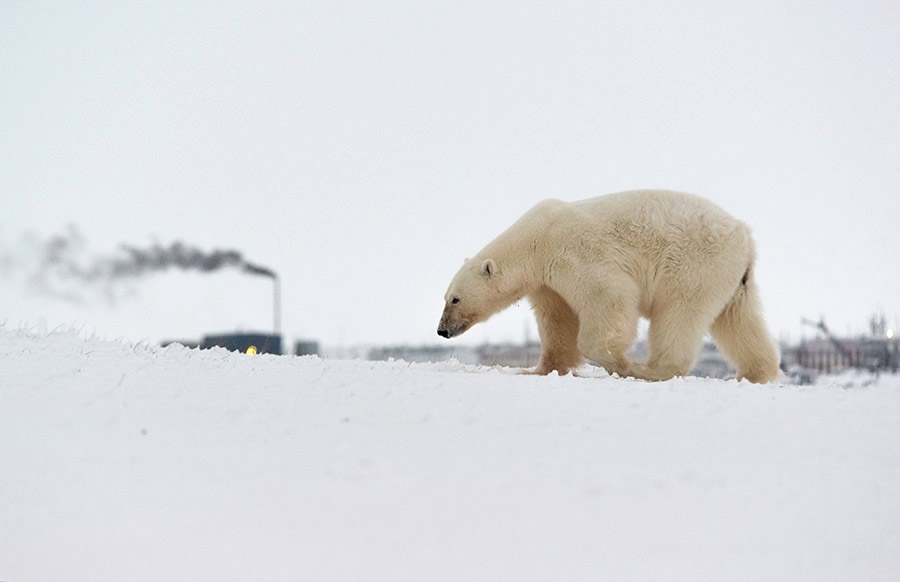This week a group of leading scientists and UK climate advisors wrote a letter to the editor of The Times newspaper criticising its “poor quality” and “distorted” coverage of climate change.
In particular, they raised concern over the fact that the Murdoch-owned paper very frequently publishes climate science denial linked to Lord Lawson’s Global Warming Policy Foundation (GWPF).
The signatories – which include Lord Deben and Lord Stern – urge the editor, John Witherow, to instead make the “remarkably robust” level of evidence on climate change the “centrepiece of debate… rather than the viewpoints of one highly marginal and increasingly out-dated pressure group.”
And while certainly not all of The Times’ science reporting should be called “poor quality”, from time to time DeSmog UK has published articles debunking its misleading or false claims about climate change – which, more often than not, all originate from the climate science denying GWPF.
So here we give you, in no particular order, the top 10 climate change articles published in The Times over the past few years. The debunked edition.
Planet is Not Overheating, Says Professor
This article describes a study commissioned and paid for by Lord Lawson’s climate science denying GWPF – the author received £3k for writing it. According to his study, if you extrapolate patterns of warming over the past 160 years using simple statistical methods, then there won’t be much global warming (only a quarter of a degree to 2100).
There’s only one problem. The study ignores the physics and the greenhouse effect – it uses models usually used for economic forecasting, and was done by a statistician not a climate scientists. And, it was not peer-reviewed.
In response to this misleading study, a rebuttal was published in a letter to The Times and climate scientist Dana Nuccitelli critiqued it in The Guardian. It was also ridiculed widely on social media.
You can check out DeSmog UK’s thorough debunking of the GWPF study here.
Scientists ‘Are Exaggerating Carbon Threat to Marine Life’
This article says that scientists are exaggerating the threat of ocean acidification caused by carbon emissions. It claims that many methods used to measure acidification are flawed and that there is an ‘inherent bias’ in scientific journals.
The article was rated by a number of scientists on Climate Feedback, where it was given the lowest possible score – ‘very low’ – on scientific credibility.
In an exclusive interview, DeSmog UK spoke to Professor Howard Browman, the scientist whose work it is based on. In the interview, Browman accused The Times of omitting or misrepresenting key points and that it “cherry-picked” aspects of an interview with him “seemingly in order to be sensational”.
Science is Turning Back to the Dark Ages
In this comment piece by Melanie Phillips, a right-wing British journalist and commentator, she argues that science has lost much of its academic integrity and rigour as scientists cut corners: the peer-review process gets sloppy, corruption pervades institutions, and conformity drives biases.
However, this piece itself somewhat fails in its ‘scientific integrity’ and ‘rigour’ as it echoes the above Times article on the “exaggeration” of ocean acidification. She also claims that scientists tried to “hide the decline” in temperature in the so-called ‘Climategate scandal’ – a claim that has been repeatedly disproven by independent inquiries.
You can find the letters of rebuttal published in The Times here.
Global Warming is Good for Us, Claims Scientist
This is another example of The Times’ friendly coverage of the GWPF’s climate science denial. The article can now be found with a correction, since The Times had initially reported that it was based on a peer-reviewed paper. Which it wasn’t.
The article was based on a report called ‘Carbon Dioxide: The Good News’ by GWPF academic advisor Indury Goklany and published by the GWPF. It says that actions to lower carbon emissions would deprive people of the wonderful benefits of CO2 – which would apparently be more important than reducing the problems caused by global warming.
Thankfully the article does include a quote pointing out that “Drowning Bangladeshis might not be reassured by higher crop yields in Ukraine”.
DeSmog UK covered the GWPF study’s claims here.
Now Here’s the Good News on Global Warming
In this comment piece, based on the same Indury Goklany ‘paper’, Matt Ridley – also a GWPF academic advisor – argues that CO2 has positive effects here and now which will “not necessarily” be outweighed by harms in the future. He even jokes that farmers should pay coal producers reparations for higher crop yields from all the extra CO2.
But Ridley’s article is complacent and based on very shaky grounds as Richard Betts of the Met Office points out. It starts by selectively quoting Betts on the effects of CO2 on vegetation (which is widely documented) but then implies that the scientists have overlooked this phenomenon.
Its argument that the positive effects of CO2 may possibly outweigh the negative effects for the next few decades, and so we therefore shouldn’t act, is extremely weak – irrationally optimistic, even.
Ice Is Melting But The Polar Bears Are Fine, Say Sceptics
source: the polar bear programme
This article essentially says that polar bears are fine, and in fact, their numbers are increasing – so people need to just calm down. And quelle surprise, it’s based on a report by conservationist Susan Crockford published by the GWPF.
The report says polar bear numbers are increasing (citing Crockford’s own blog as evidence) so therefore global warming is not a threat to them.
However, a 2012 review of separate peer-reviewed evidence suggests that of the 19 subpopulations of polar bears, eight are probably declining, at least partially due to climate change. Some evidence suggests some of these populations have stabilised since 2012 due to conservation efforts which have reduced hunting – but the overall trend is one of decline.
Carbon Brief did a good analysis of this article in which they fact check Crockford’s claims.
Climate Death Forecast ‘Exaggerated’
The GWPF’s Indur ‘CO2 is great’ Goklany makes another appearance in the Times in this article.
Essentially, the article argues that the World Health Organisation (WHO) has exaggerated the number of deaths likely to arise from heatwaves, diarrhoea, malaria, and malnutrition as a result of climate change because it fails to account for the fact that people are not just “potted plants”.
It’s logic goes something like this: when people’s homes and towns are flooded, they will simply build walls or move; when there are heatwaves people will know in advance and use ‘heat health protection measures’; when diseases spread, better hygiene and water supplies will stop them from being a problem.
However, this article fails to appreciate that many of the worst affected people are likely to be the poorest, and will probably not have the means to take these adaptive actions – and as it turns out the WHO study did account for such economic and technical advancements anyway.
Climate Change Lobby ‘Has African Blood on its Hands’
This article is based on the former environment minister Owen Paterson’s 2014 ‘annual lecture’ to guess which lobby group? Yup, the GWPF. (Anyone else starting to see a pattern?)
Paterson is reported as saying something along the lines that it’s really mean to deny poor people fossil fuels – they die of indoor air pollution all the time from wood-burning stoves, so burning fossil fuels is better.
While it’s true that air pollution causes deaths perhaps, instead of advocating for burning more fossil fuels which cause negative impacts on health and livelihoods, we should be looking towards renewables – a solution the International Energy Agency has deemed a better option than coal and gas in places like rural Africa.
Did we forget to mention that Paterson’s speech was written by his brother-in-law Matt Ridley? You can check out DeSmog UK’s articles on this here and here.
Voices of Dissent Drowned Out by Climate Change Scientists
In short, this article is about a climate researcher Vladimir Semenov complaining that editors rejected his scientific paper. Why? Because the paper questioned the accuracy of computer models to predict warming, so, in his mind, this amounted to “censorship”.
What the story actually describes – as anyone familiar with science knows – is the normal peer-review process in action. The journal asked him to re-submit an improved version; so, not really what you would call censorship.
At the bottom of the article, Semenov even admits that the reviewers who suggested he alter his paper were “technically correct”. And by the way, The Times article was published in 2014, the scientific paper was turned down in 2009.
‘Witch-Hunt’ Forces Out Climate Scientist
This article concerned Professor Lennart Bengtsson, a University of Reading climate scientist who decided to join the academic advisory council of, you guessed it, the GWPF in 2014.
Having done so, he was somewhat surprised when a number of fellow scientists gave him a hard time, asking such things as “what on earth were you thinking?”
This amounted, Bengtsson said, to “McCarthyite” treatment; soon after he quit the GWPF. Nigel Lawson, chair of the GWPF, agreed it was a “witch-hunt” and that it was apparently a huge scandal that undermined the entire scientific community.
Correction April 26 2016: An earlier version of this article wrongly stated that Melanie Phillips was a Fellow of the Royal Society and winner of the Nobel Prize for Physics. This has now been corrected.
Photo: NASA Goddard Space Flight Center via Flickr
Subscribe to our newsletter
Stay up to date with DeSmog news and alerts








